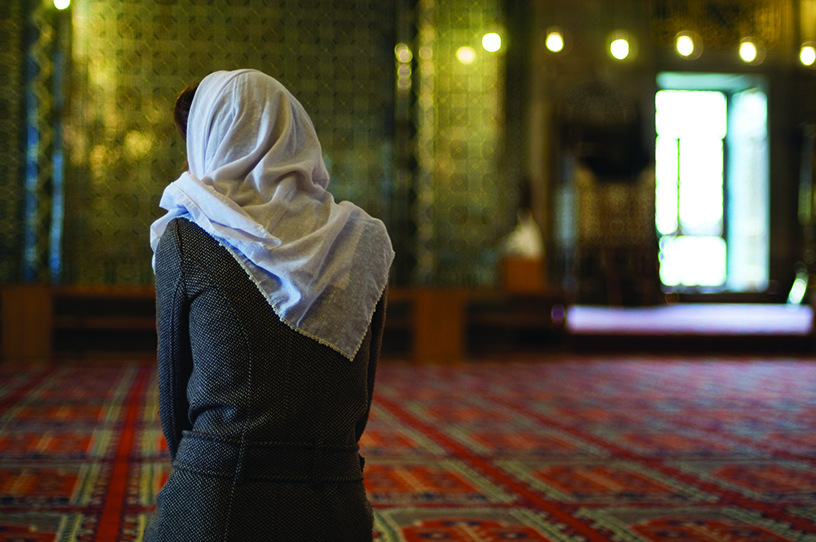The Good Book Company (Australia) will be closed from Saturday 21st December until Thursday 2nd January. Any orders placed during this time will be held and dispatched on Thursday 2nd January 2025. Emails will still be checked. Apologies for any inconvenience this causes.
 Today is the first day of Ramadan, when devout Muslims observe a strict fast from sunrise to sunset. It is a time of heightened tension for many Muslims, as they cope with hunger and thirst—especially as, at this time of year in the Northern hemisphere, the days are very long. But what is this festival all about, and what should our attitude towards it be?
Today is the first day of Ramadan, when devout Muslims observe a strict fast from sunrise to sunset. It is a time of heightened tension for many Muslims, as they cope with hunger and thirst—especially as, at this time of year in the Northern hemisphere, the days are very long. But what is this festival all about, and what should our attitude towards it be?
Origins
According to Muslim tradition, Muhammad received the first of his revelations during the lunar month of Ramadan. Because Muslims operate on a lunar-month system, their calendar moves by about 12 to 15 days each year. So over the course of time, Ramadan will move from winter to summer and back again. During the month of Ramadan a Muslim is expected to fast from sunrise to sunset. They fast from all food, drink, tobacco products, sexual relations, and various forms of entertainment. They will not wear makeup or use perfumes and deodorant.
They can, however, eat and do what they like after the sun sets and until the sun comes up the next morning. It is said that more food is consumed during the month of Ramadan then at any other time of the year. The breaking of the fast is celebrated by the eating of a date and then, depending on the region, an assortment of foods that are consumed until late that night. One last meal is eaten before sunrise and many Muslims will then sleep as late as their jobs permit. During the summer months, Ramadan is hardest on the workers who must rise early and perhaps toil in the sun all day without being able to drink water to renew their strength.
What's the point?
You might think of Ramadan as a little like Lent, or the start of a New Year. One Muslim described the purpose like this:
“The reason Muslims fast is to discipline their body and mind. The absence of food and drink and other pleasures provides a perfect opportunity to concentrate on prayer and worship. Not having the luxuries of life to hand makes it easier to reflect on life and be grateful for what we do have. Muslims use this month to start afresh and give their life a new direction… to make resolutions, similar to New Year's resolutions. It is a time when they decide how they want to live their life for the next year and try their very best to adhere to their new commitments.”
The practice of fasting during the month of Ramadan is one of the five pillars of Islam, through which Muslims believe they will find salvation. So they take it very seriously. And even though we know that salvation is not by works, but only through Christ, we should not belittle or mock them for their practice, but rather use it to open conversations that could lead to a sharing of the good news about Jesus.
During Ramadan, even though we know that salvation is not by works, but only through Christ, we should not belittle Muslims for their practice
Opportunities
Most Muslims who might be your neighbors or co-workers will be very open to talk about their faith with you, if you ask in a friendly and respectful way. Muslims place great value on real friendships—which can be a bridge to talking about the gospel. They will not be offended if you are curious about their faith, and ask what Ramadan means to them.
But be aware that Ramadan is a time of great spiritual warfare and spiritual pride on the part of your friend. They are often proud of the fact they are fasting and doing something to earn their way to heaven. At this time of the year they may often feel superior to everyone else. It can be an opportune time to talk about the purpose of fasting. However, if you never fast yourself, then your thoughts will fall on deaf ears. It is also a time of celebration, where you can break the fast with your friends, enjoy their company and have significant faith discussions.
Some Do's and Dont's for Ramadan
True Christian hospitality goes a long way with Muslims. Invite your friend over for dinner when they break their fast.
 You can find more help, understanding and advice on reaching out to Muslims in a constructive way in Engaging with Muslims by John Klaasen, which this article is extracted from.
You can find more help, understanding and advice on reaching out to Muslims in a constructive way in Engaging with Muslims by John Klaasen, which this article is extracted from.
This article was originally posted on The Gospel Coalition blog.
Now you've seen this post, let us know what you think. Comment in the box below. You can also like us on Facebook, follow us on Twitter, and subscribe to our YouTube Channel